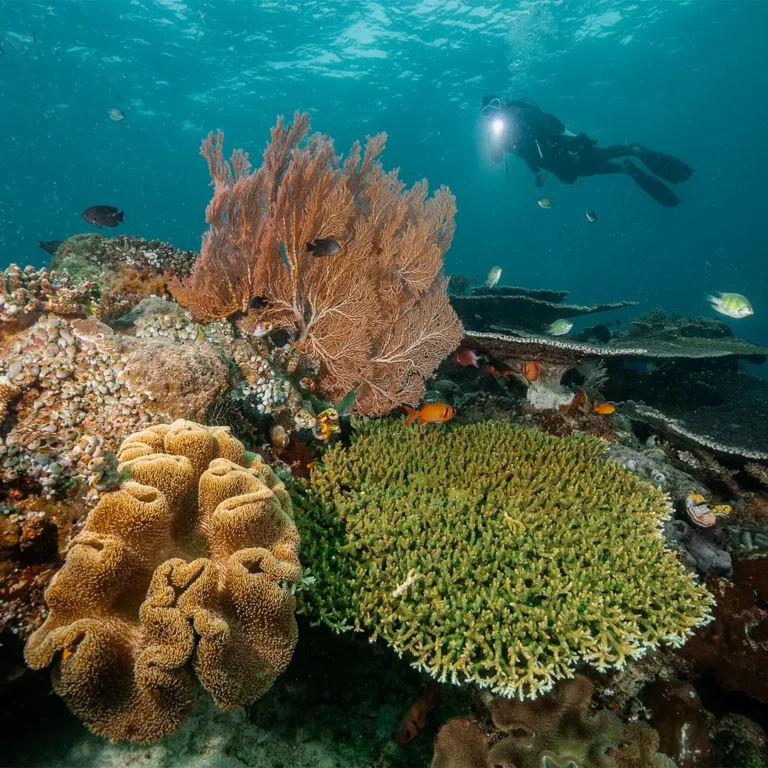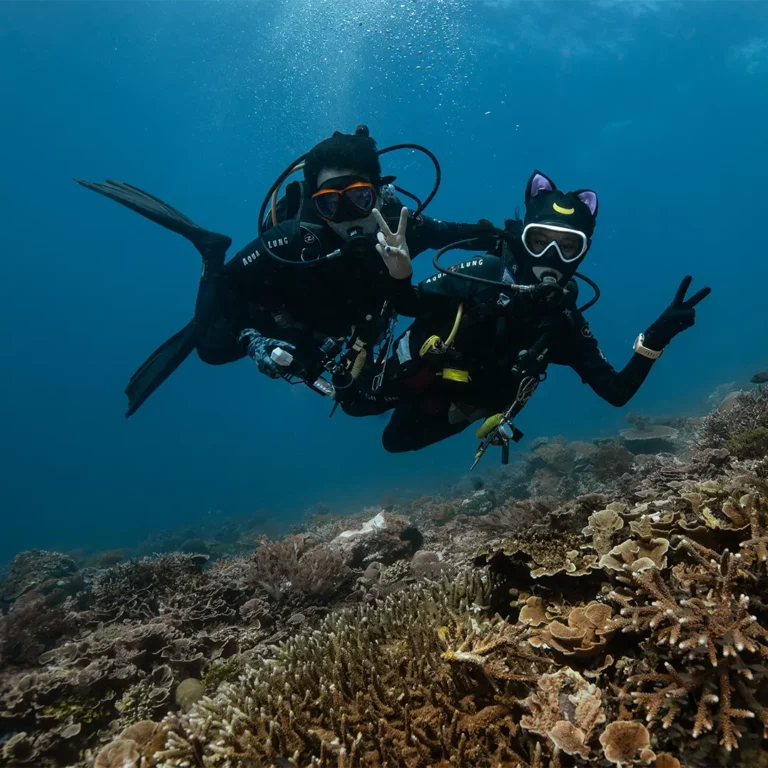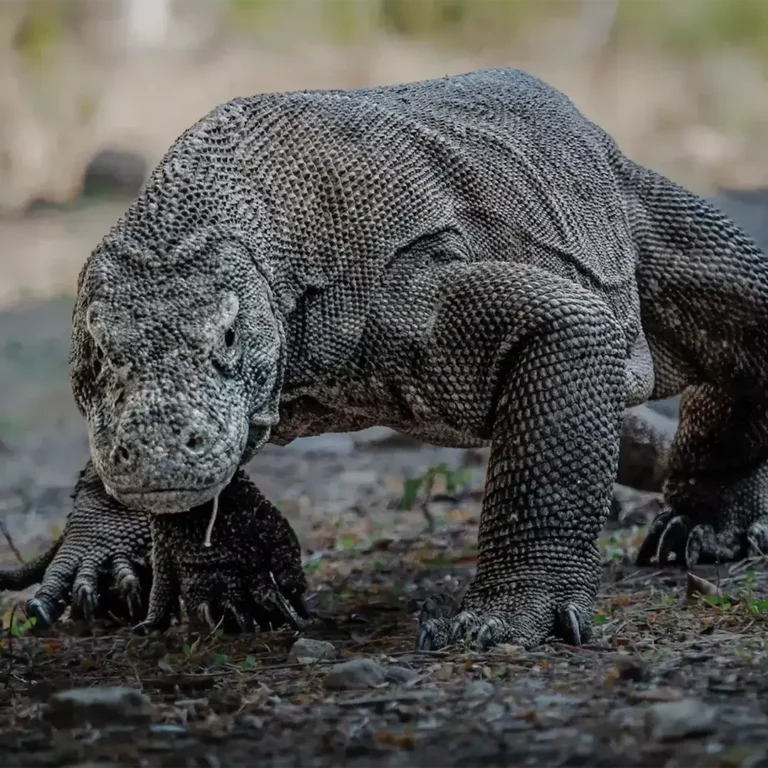Under the beautiful blue sea lies a whole new world of exploration, but in order to explore it safely, you must first understand how breathing works when scuba diving. Diving with compressed air opens up whole new worlds.
However, even experienced divers can be dangerous if they do not know how to keep themselves well-oxygenated in the depths of the ocean. In this blog post, we’ll go over why breathing is different underwater, how to breathe properly during scuba dives, and how to manage your air supply safely.
Whether you’re new to diving or have been doing so for years, this article is packed with essential information and expert advice that will help make your journey as smooth as possible – no matter how far beneath the waves you go.
Is it difficult to breathe while diving?
Scuba diving can be a thrilling experience. However, for many people, the prospect of being submerged deep underwater is both intimidating and frightening. One of the most common concerns for new divers is whether it is difficult to breathe while diving.
While the human body is not designed to breathe underwater, modern diving equipment such as regulators and oxygen tanks have allowed divers to breathe comfortably and safely while exploring the ocean’s depths.
Taking deep, slow breaths while diving can also improve the overall experience by allowing divers to fully appreciate their surroundings. To ensure a safe and enjoyable diving experience, aspiring divers should receive proper training and follow all safety protocols.
What Is the Importance of Breath Control While Scuba Diving?
Breath control is an essential skill that all scuba divers should master before venturing into the ocean’s depths. When scuba diving, one is confronted with a hostile environment that, if safety protocols are not followed, can be fatal.
One such protocol that all divers must prioritise is breath control. Improper breathing techniques can result in panic, rapid breathing, and a buildup of carbon dioxide in the bloodstream, all of which can endanger the diver’s life.
However, with the right training and practice, anyone can learn to control their breathing and enjoy a smooth, relaxed dive. Divers can conserve air, increase bottom time, and have a more enjoyable underwater experience by controlling their breathing.
Overall, if a scuba diver wants to have a safe and enjoyable dive, he or she must master breath control.
How Do Scuba Divers Breathe?
Have you ever considered how scuba divers breathe underwater? Divers, unlike sea creatures, carry equipment that allows them to breathe air from a tank rather than using gills to extract oxygen from water. The device consists of a regulator that connects a compressed air tank to a mouthpiece and a mask that covers the nose and eyes.
The regulator reduces the high pressure of the air in the tank, delivering it at a safe inhalation pressure. As divers descend deeper into the water, the pressure rises, and the regulator automatically adjusts to keep the air supply constant. Understanding the mechanics of this necessary piece of equipment is critical to having a safe and enjoyable diving experience.
What Kind of Gas Do Scuba Divers Use?
The majority of scuba divers use compressed air, which is a nitrogen-oxygen mixture. Some more experienced divers, however, may choose to use other types of gases, such as nitrox or trimix, to adjust to the depth and length of their dives. Because nitrox contains a higher percentage of oxygen, it is suitable for diving at shallower depths for longer periods of time.
Trimix is a three-gas mixture (nitrogen, oxygen, and helium) used for deep dives to reduce the risk of nitrogen narcosis and decompression sickness. To ensure a safe and enjoyable dive, every scuba diver must be aware of the properties of the gas and its effects on the human body, regardless of the gas used.
Tips for Improving Your Breathing While Diving
Here are some tips to help you breathe better while diving. Take a look at these:
Use Proper Breathing Techniques
Proper breathing techniques are essential when diving to maximise your experience. You can improve your lung capacity, endurance, and enjoy longer, more relaxed dives by practising good breathing habits.
But, exactly, what are proper breathing techniques? It all starts with becoming more aware of your breathing patterns and paying attention to your inhales and exhales. Slow, deep breaths will assist you in conserving air and remaining calm under water.
Of course you will be under water using a regulator so all breathing will be in and out through your mouth, and try to maintain even and steady breathing.
Maintain a Relaxed State
To improve your breathing, you must maintain a relaxed state. Many beginner divers focus on taking deep breaths quickly, believing that this will help them breathe better. This, however, can cause hyperventilation, which can result in dizziness, lightheadedness, and even unconsciousness.
Instead, staying calm and relaxed while diving can help you breathe better and dive for longer periods of time. Slow down, concentrate on your breathing, and breathe continuously and deeply. Try to release any tension in your body with each exhale, allowing your muscles to relax and your breathing to become more natural and efficient.
Make use of your diaphragm
Engaging your diaphragm is the key to controlling your breath. Using your diaphragm can help you improve your breathing technique and extend your dive time, allowing you to spend more time exploring the underwater world.
But, you may wonder, what exactly is the diaphragm? It is a thin muscle located beneath your lungs that aids in the movement of air into and out of your body. When you breathe, your diaphragm contracts and relaxes, allowing air to enter your lungs.
Using your diaphragm expands your lung capacity, allowing you to consume more air and avoid the gasp-reflex. So, the next time you go diving, engage your diaphragm, take steady, deep breaths, and marvel at the ocean’s wonders.
ALSO READ : 9 Things That Can Ruin Your Dive Gear
Master Buoyancy Control
Mastering buoyancy control is a necessary skill for improving your diving breathing. You can breathe more easily and conservatively if you can maintain neutral buoyancy. Longer dive times and a more comfortable and efficient dive are the result.
Buoyancy control also protects marine life and the underwater environment. You can become a better, safer, and more responsible diver if you take the time to learn and practise proper buoyancy techniques. So, the next time you dive, concentrate on buoyancy control to have a more relaxed and enjoyable dive.
Regularly Equalise
The process of balancing the pressure within your ears and sinuses with the surrounding water pressure is known as equalisation. This reduces discomfort, pain, and even the possibility of injury.
Equalising on a regular basis ensures that the pressure changes as you descend and ascend are consistently regulated. It’s a necessary skill to master if you want to have a safe and enjoyable diving experience. Remember that taking the time to equalise on a regular basis during your dive can help you breathe better and relax more while you’re underwater.
Master Buoyancy Control
Mastering buoyancy control is a necessary skill for improving your dive breathing. You can breathe more easily and conservatively if you can maintain neutral buoyancy. Longer dive times and a more comfortable and efficient dive are the result.
Buoyancy control also protects marine life and the underwater environment. You can become a better, safer, and more responsible diver if you take the time to learn and practise proper buoyancy techniques. So, the next time you dive, concentrate on buoyancy control to have a more relaxed and enjoyable dive.
Improve Your Fitness and Lung Capacity
Regularly practising different breathing exercises is one way to increase your lung capacity and improve your diving experience. Deep breathing exercises help your body function more efficiently by allowing you to take in more oxygen and expel more carbon dioxide. Another useful tip is to focus on breathing through your mouth rather than your nose, which can restrict airflow and make breathing difficult. So, all those “life coaches” in Ubud banging on about breathwork classes were actually onto something after all!
Use Mindfulness and Relaxation Techniques
To improve your lung capacity and control your breathing patterns, try deep diaphragmatic breathing exercises. Underwater, mindfulness can help you stay calm and focused, allowing you to conserve energy and navigate the dive with ease.
Consider using meditation or yoga to train yourself to help stay present in the moment and avoid distractions prior to diving. By using these techniques, you will be able to take deeper, more relaxing breaths and fully enjoy your diving experience. Meditation techniques can even be applied underwater too. Hmmmm I’m really in danger of buying some linen and an abundance hat and moving to Ubud here aren’t I 😉
Keep an Eye on Your Air Supply
Monitoring your air supply is an important tip for improving your breathing while diving. This allows you to keep track of how much air is left and ensure that it is free of contaminants. As you descend deeper into the water, the air density changes, which can sometimes make breathing difficult.
Monitoring your air supply can help you stay aware of your breathing patterns and regulate them accordingly. Furthermore, keeping your scuba tank serviced and maintained on a regular basis can improve the quality of the air you’re breathing, ultimately improving your diving experience.
Dive Within Your Limit and Capabilities
One important piece of advice is to always dive within your limits. This entails being aware of your physical limitations and knowing when to rest or slow down. By avoiding overexertion, you can save energy and avoid the onset of stress and anxiety, both of which can impair your breathing. Before each dive, assess your physical and mental state and plan accordingly. Always prioritise your safety and well-being. Don’t be afraid to tell your dive guide if swimming into the current was too much for you on a dive, so they can adjust the dive plan for the next site if you encounter strong currents.
Dive with an Expert
Diving with an experienced and knowledgeable buddy is essential for any diver looking to improve their breathing. It is an important factor in determining how much air you use during the dive, your comfort level, and, ultimately, your underwater safety.
Dive with a partner who has been diving for a longer period of time and has more experience so you can observe and learn from their breathing techniques. They can provide helpful advice on how to improve your overall breathing, resulting in better air conservation, slower respiration rates, and a more enjoyable and safe diving adventure.
You will become a more confident and relaxed diver with better air management skills with consistent practice and guidance from your experienced buddy.








